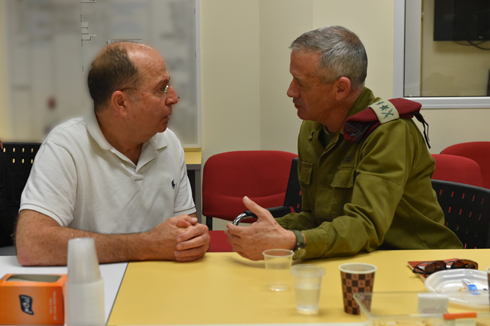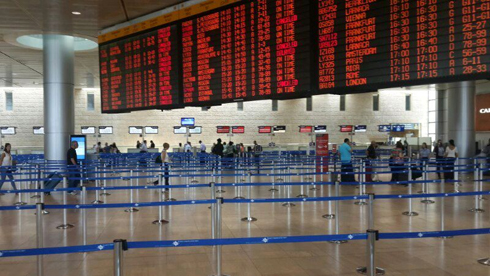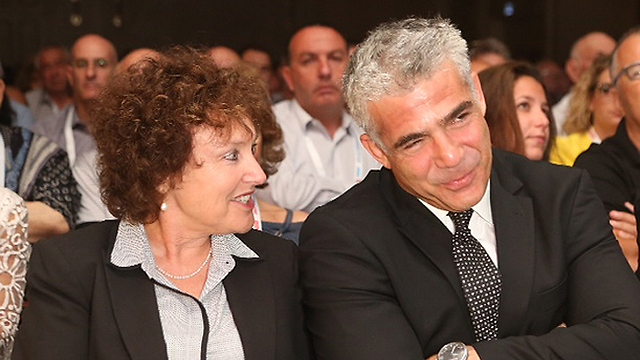
How much did Protective Edge really cost?
The accountant general claims the cost of the operation amounted to just NIS 6.5 billion, charging that the Defense Ministry included unrelated expenses in its bill; for its part, the defense establishment says it carried out daily and precise calculations during the campaign.
The squabble over the cost of the military campaign during Operation Protective Edge is intensifying. Contrary to Defense Ministry figures indicating a sum of NIS 9-10 billion, Finance Ministry officials claimed on Monday that the cost of the military campaign amounted to just NIS 6.5 billion, based on calculations made by Accountant General Michal Abadi-Boiangiu.
According to a special paper prepared by the accountant general, included in the Defense Ministry's calculations is a sum of NIS 300 million for expenses unrelated to Operation Protective Edge, along with additional unrelated costs too. Abadi-Boiangiu charges, too, that the Israel Defense Forces' calculations concerning the cost of restoring operational capacity to its units are grossly exaggerated.
The defense establishment claims it conducted daily calculations of the cost of the fighting, and Defense Ministry documents accurately indicate how much ammunition was fired every day, how many Iron Dome rockets were deployed, how many flight-hours were flown by fighter jets and helicopters, the fuel costs, the sums spent on the reserve soldiers (about NIS 600 per day per soldier), and more.
Treasury officials refused on Monday to say how their calculations were made or to explain the NIS 2.5 billion discrepancy between their figures and those of the Defense Ministry.
Speaking on Monday at an in-house ceremony with his office personnel, Prime Minister Benjamin Netanyahu said, "We are constantly required to defend our security. This has always been our supreme and primary objective and it remains so, because all the other things are made possible thanks to the security. There isn't a single responsible leader who in the face of the ever-mounting threats around us wouldn't demand a significant increase in the defense budget, and that is what we will do too – a significant increase of several billions."
Finance Ministry officials are vehemently opposed to the defense-budget hike of NIS 11 billion that Defense Minister Moshe Ya'alon is demanding, and are willing to hear of an increase of no more than NIS 2.5 billion. Netanyahu is almost fully behind his defense minister, and is willing to add NIS 8 billion to the army's 2015 budget.
Ya'alon slammed the accountant general's report, saying the accountant general "claimed we need to cut back on the expenses of fighter jet flights and the rest of the activities and training that would've taken place regardless of the war, even if it hadn't broken out."

He lamented the fact the army had to cut back on training flights and some of the Ground Forces' exercises a month before the operation because of insufficient budget.
"Have you killed and also taken possession? This argument turned into a stupid one. We are not demanding additions, but a budget to return to full level of readiness," the defense minister said.
Drop in growth forecast
Meanwhile, treasury officials predict that the Israeli economy will recover in the fourth quarter of the year, which begins in two weeks, adding that Operation Protection Edge's effect on the economy will be reflected primarily in the third-quarter data.
According to treasury officials, economic growth for the current year will amount to 2.45 percent, and will rise to 2.85 percent in 2015. Forecasts made before Operation Protective Edge spoke of economic growth of 2.9 percent in 2014 and 3 percent in 2015.
In relation to OECD figures published on Monday, Israel is in reasonable shape: The Organization for Economic Cooperation and Development estimates that the euro bloc will grow in 2014 by 0.8 percent; in May, the organization predicted a growth rate of 1.2 percent for the bloc. The forecast for growth in the United States in 2014 has also dropped – from 2.6 percent previously to 2.1 percent of late.

Nevertheless, treasury officials believe the damage to Israel's tourism industry will spill over into the fourth quarter of the year, and also into the first quarter of 2015. The remaining industries are expected to make a significant recovery in the last quarter of 2014.
The Finance Ministry expects to collect taxes totaling NIS 257 billion in 2015 – a mere NIS 5 billion higher than the sum to be collected in 2014.
Complimentary ranking for Flug
On the backdrop of the static state budget and zero-VAT law, there is some good news for the Israeli economy too: Bank of Israel Governor Karnit Flug has been listed as one of the world's top seven central bank governors by the Global Finance magazine. Flug is among seven governors who received the magazine's top grade, an A. Flug shares the honor with the governors of the central banks of India, Malaysia, the Philippines, Saudi Arabia, Switzerland and Taiwan. Flug is in favor of raising taxes in 2015, but faces opposition from Finance Minister Yair Lapid and the prime minister.
Yoav Zitun contributed to this report.












